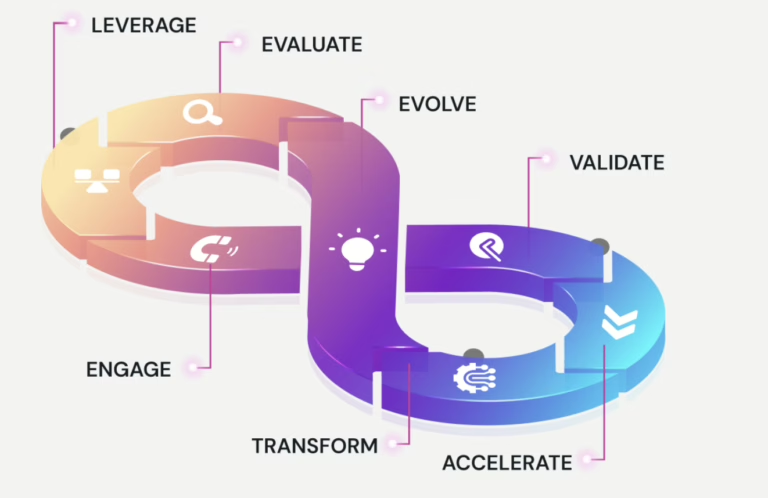According to a comprehensive study by the Global Sustainable Investment Alliance (GSIA) in 2021, sustainable investment assets reached $35.3 trillion globally, marking a 15% increase from 2018. This exponential growth underscores the mounting importance of ESG considerations in investment decisions worldwide.
As of 2022, businesses face mounting pressure to showcase their commitment to sustainability. Reports indicate that over 90% of the world’s 250 largest companies now publish annual sustainability reports, compared to just 20% in 2011, demonstrating a substantial shift toward ESG transparency. Additionally, the total number of ESG funds available to investors doubled between 2018 and 2020, reaching over 1,500 funds globally.
Considering these trends, ESG Audits and Reporting have become essential for organizations across all industries. These audits not only assess a company’s environmental impact, social responsibility, and governance practices but also provide stakeholders with vital insights into its long-term viability and resilience.
Therefore, you, as a business, need to understand the fundamental principles and best practices of ESG audits and reporting so that you can prevail in this sustainability-conscious market.
What is an ESG Audit?
An ESG audit means two things. First, it is the process of identifying any potential risks of an organization in terms of the three pillars—environmental, social, and governance—before the company applies for an ESG report.
In this way, the organization can take action on the points, gaps, and risks identified in the audit.
However, the ESG audit can be used to obtain a neutral partner who assesses the accuracy and integrity of ESG organization report disclosure. This is often done using the ISAE(International Standard on Assurance Engagements) auditing and assurance standards.
Why are ESG Audits so critical?
In the current corporate landscape, ESG principles need to be discussed and concrete actions taken. ESG audits offer a structured approach to evaluating an organization’s adherence to these principles, bringing transparency, accountability, and sustainability.
Firstly, ESG audits enhance transparency by assessing performance, identifying gaps, and setting improvement goals. By fulfilling ESG criteria, organizations showcase their commitment to responsible practices and earn the trust of stakeholders. Also, ESG audits help mitigate risks by proactively identifying vulnerabilities in areas like ESG compliance and supply chain practices. Addressing these issues minimizes the risk of reputational damage and legal non-compliance.
Moreover, ESG audits attract investors who prioritize sustainability. By showing commitment through audits, organizations appeal to a broader investor base, unlocking opportunities to capitalize.
Best Practices for Successful ESG Audits
Establish Audit Objectives
Clear audit objectives are the foundation of effective ESG audits. By aligning with the organization’s sustainability goals, these objectives focus auditing efforts and drive meaningful change. Objectives should be measurable, relevant, and aligned with ESG priorities, such as reducing carbon emissions or enhancing diversity. Establishing these objectives creates a roadmap for the audit, guiding performance assessment and improvement efforts.
Scope and Materiality Assessment
Defining the scope of an ESG audit and outlining its boundaries and focus areas is pivotal for its success. Materiality assessment is key, prioritizing ESG issues based on their significance. This ensures resources are directed towards areas with the highest impact, aligning audit efforts with stakeholder and operational priorities. Through rigorous materiality assessment, organizations tailor their audits to address the most critical ESG concerns effectively.
Data Collection and Verification
Accurate and reliable data forms the bedrock of any effective ESG audit. Organizations must gather pertinent ESG data from diverse sources, including internal records, stakeholder surveys, and third-party assessments. Systematic and thorough data collection methods are imperative to comprehensively assess ESG performance. Employing verification techniques, like independent validation or auditing, ensures data integrity, lending credibility to audit findings and facilitating informed decision-making.
Risk Assessment
Assessing ESG risks is integral to ESG audits. By identifying and evaluating environmental, social, and governance risks, organizations proactively manage these threats and safeguard sustainability performance. This involves analyzing risk likelihood, potential consequences, regulatory compliance, reputational risks, and supply chain vulnerabilities. Understanding these risks enables organizations to develop targeted strategies, mitigating risks and promoting long-term sustainability.
Performance Evaluation
Evaluating an organization’s ESG performance is pivotal during audits. It entails measuring performance against set benchmarks, tracking progress, and pinpointing areas for enhancement. Key performance indicators (KPIs) offer quantitative measures, facilitating progress tracking. Consistent and reliable measurement methodologies, aligned with recognized standards, are crucial. By evaluating performance, organizations glean insights into strengths and weaknesses, enabling data-driven decisions and fostering ongoing improvement in ESG practices.
Integrating ESG into Corporate Strategy
Developing a clear long-term vision for sustainability involves seamlessly integrating ESG principles into the organization’s strategy. This requires embedding ESG considerations into decision-making protocols, governance frameworks, and risk management systems. By doing so, companies not only demonstrate their commitment to sustainable practices but also ensure that every facet of their operations contributes to long-term value creation. This comprehensive approach aligns business objectives with environmental and social imperatives, paving the way for enduring success and positive impact in the global community.
Conclusion
ESG audits are crucial for promoting sustainability and ethical business practices. By considering environmental, social, and governance factors, companies can improve transparency, lower risks, and appeal to responsible investors. Achieving effective ESG audits involves understanding key principles, setting clear goals, verifying data, assessing risks, and evaluating performance.
Additionally, clear reporting and communication strategies engage stakeholders and align ESG efforts with company objectives. Following best practices helps companies make a positive impact, build trust, and contribute to a sustainable future.
If you’re looking to simplify your ESG audits, 47Billion can help. Our all-in-one ESG management platform digitizes and streamlines your ESG workflows with easy-to-use features, customizable processes, and seamless integrations. With 47Billion, conducting audits, assessments, and reporting becomes simple, helping you advance your ESG goals effectively.







